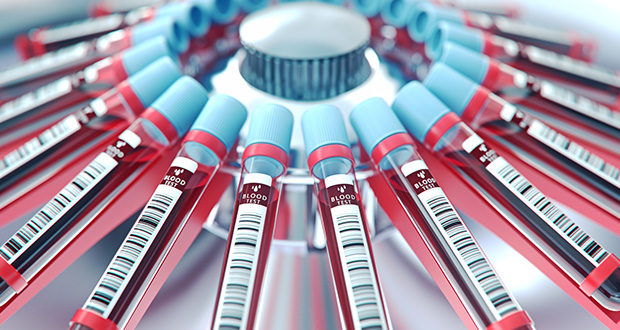Groundbreaking research presents new hope in catching early signs of Alzheimer's by gauging a specific biomarker in the blood that increases the odds of developing the disease by a third.
The Macquarie University and CSIRO study revealed that people with elevated metabolite 3-HAA were 35 per cent more likely to progress to Alzheimer's than those with normal levels.
It's one of the most comprehensive longitudinal studies worldwide, where the researchers followed nearly 300 older people for 12 years over intervals of 18 months.
"We need more research, but there are so many exciting possibilities here," said co-researcher Dr David Lovejoy.
"This particular metabolite predicts your risk of mild cognitive impairment or dementia that occurs several years before you are diagnosed.
"We hope to progress to a simpler blood test, where, if someone has a positive test, it would be a wake-up call to modify your lifestyle."
Dementia was the second leading cause of death over the past decade in Australia, while effective treatment or early detection of the disease is yet to be uncovered.
Alzheimer's pathology is characterised by a build-up of amyloid plaques and tau proteins in the brain, and the neurological system's inflammation is considered a key culprit.
"It's becoming clearer that chronic inflammation plays a significant role in Alzheimer's disease and dementia by increasing amyloid toxicity," Lovejoy said.
"We found that inflammation of a particular pathway could reliably predict who would eventually develop dementia."
The kynurenine pathway (KP) produces metabolites involved in immune regulation and protecting the brain, spinal cord and nerves.
When this pathway is not functioning well, it produces higher levels of neurotoxic metabolites, such as 3-HAA, that can kill neurons.
"In the past, 3-HAA has been observed to drop after a diagnosis of dementia, but nobody has ever looked at the lead-up of the disease," Lovejoy said.
"We were surprised to see increased 3-HAA levels strongly predicting risk of developing mild cognitive dysfunctioning that leads to a diagnosis of dementia."
Although 3-HAA has a protective, antioxidant effect on the brain, it's toxic to T-cells, which play a crucial role in clearing amyloid plaques in the brain.
Lovejoy said there's still debate in the scientific community whether the increase in amyloid plaques is a mediator of neuronal damage or just a standby product.
"There's still some doubt, but there is some suggestion that 3-HAA has a negative effect on the immune system, specifically on T-cells.
"Or what might be happening is that for people who are going to progress to Alzheimer's, the KP kicks into action and produces 3-HAA, which has antioxidant properties.
"So it might also be a mechanism showing the body's trying to clean up the problem."
While the research is still in its infancy, Lovejoy said there's a convincing argument that future rapid blood tests for 3-HAA will emerge on the market.
"In theory, if you found your levels were high, you could get a brain scan to determine whether there's a build-up of amyloid plaques and begin taking preventative measures," he said.
"But we don't know yet whether the increased levels of 3-HAA leading up to dementia can be reversed."
Lovejoy emphasised that pursuing a healthy lifestyle offers a surplus of benefits in preventing inflammation in the body and preventing other diseases that may develop later in life in the bud.
Lifestyle changes such as following a Mediterranean diet, cutting back on alcohol intake, and daily exercising can help stave off the onset of the disease.
For example, exercise has been shown to boost blood flow to the brain and stimulate cell growth and survival.
"You'll reduce your risk of several serious diseases, and you'll have a sweeter life as you get older," Lovejoy said.
Do you have an idea for a story?Email [email protected]
 Aged Care Insite Australia's number one aged care news source
Aged Care Insite Australia's number one aged care news source

